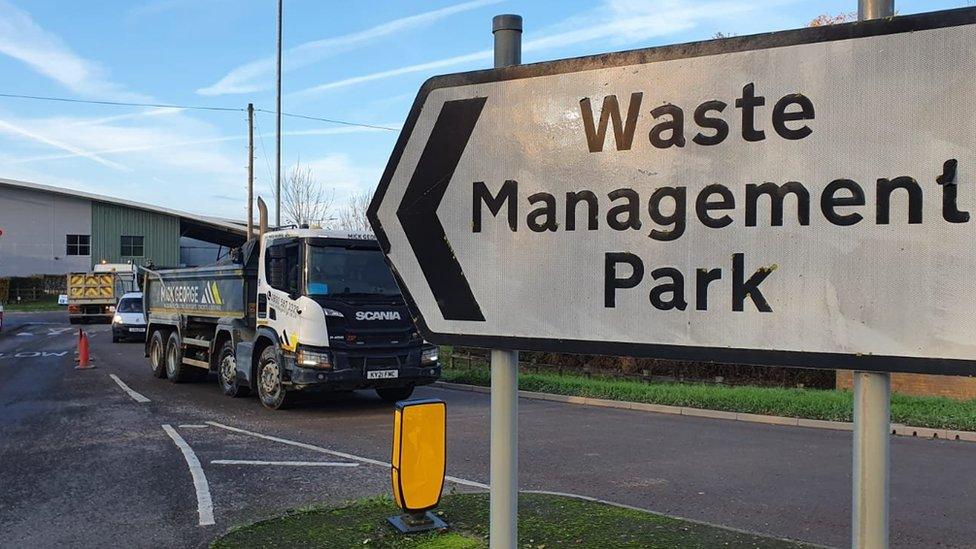Waterbeach: The mystery over a baby found in a recycling tip
- Published
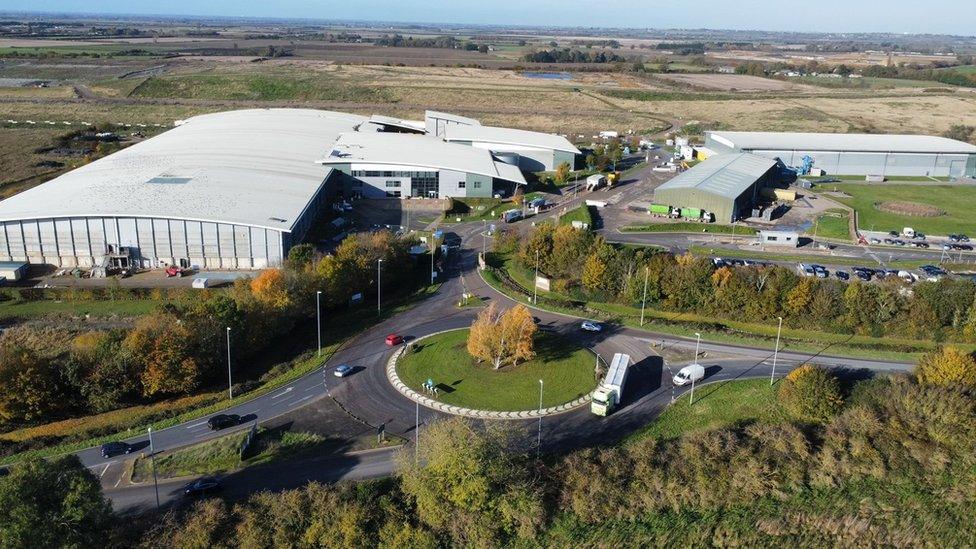
The body of a baby was found by workers at Waterbeach recycling centre, near Cambridge
It has been one year since staff sorting through household recycling made a tragic discovery in amongst the plastic and glass - the body of a baby boy. Named Gabriel by medics, because he was found in advent, no-one has been able to identify him, despite having a DNA profile. After police closed their investigation, will we ever know who Gabriel really was and how he came to be amongst the waste?
Situated just off a busy A-road, the Waterbeach waste management park processes Cambridgeshire's household recycling around the clock, working through up to 18 tonnes each hour.
But on the morning of 29 November 2022, that system came to an abrupt halt when staff pressed the alarm button after Gabriel's body was found.
Police were called and their investigation report, obtained by the BBC through the Freedom of Information Act, sheds some light on what happened, but leaves many questions unanswered.
What was at the scene?
When recycling comes in to the centre, it gets emptied on to the floor of what is termed a "reception area", before being pushed back to keep the floor clear.
Then a scoopful from this pile gets "periodically" taken to the start of the sorting process. Police estimate Gabriel entered this process 15 minutes before he was found.
No items near Gabriel appeared to have any connection to him and "due to the very dirty environment... no samples were taken at this time", and his body was taken away.
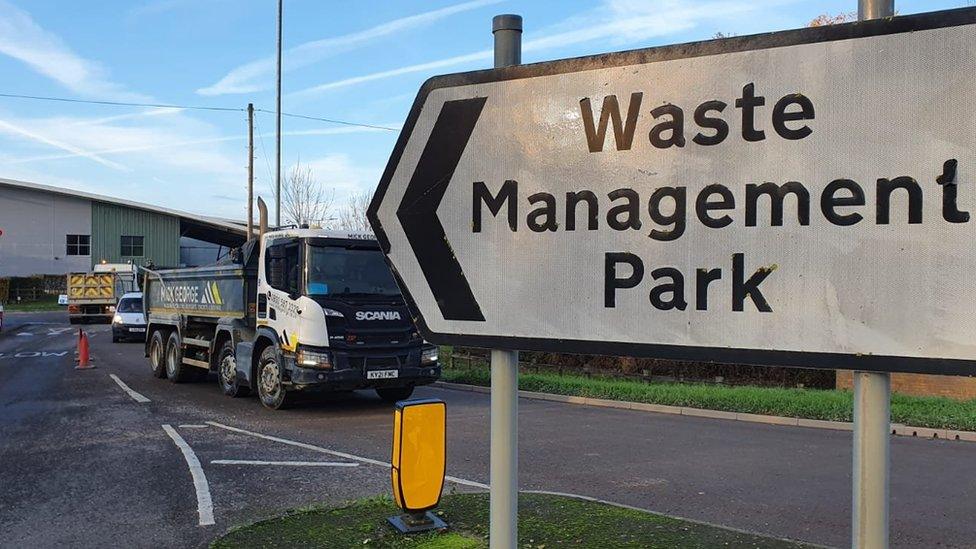
The site processes waste from across Cambridgeshire
The report stated the police search was limited by "the enormous size of the premises, the amount of recycling within it and the lack of information as to what might be of relevance".
"The only item of potential interest found was a sanitary towel which was seized, however subsequent examination showed that this had no blood on it," it said.
Footage from CCTV cameras was "not detailed and cannot pick out any particular item so we cannot identify the exact time that the body entered the process, nor when [Gabriel] was deposited in the 'reception area'".
Where did the vehicles come from?
With nothing at the scene to help police track down where Gabriel entered a bin, in a county nearly 900,000 people call home, they investigated the possible vehicles he was in.
They focused on the "most likely" scenario that he arrived on site in the two hours before he was found.
That left nine vehicles - six of which came from the doorsteps of Cambridge and one from the south Cambridgeshire village of Melbourn.
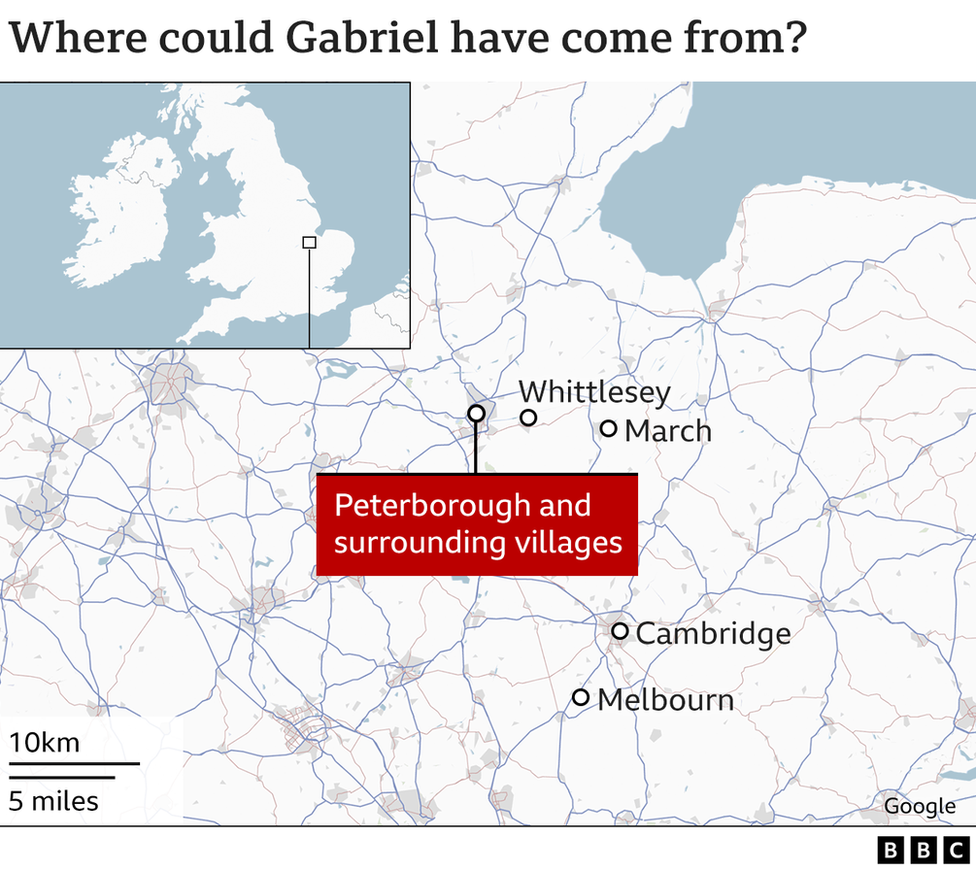
But - to add to the ever-widening net - the other lorries came from "satellite stations" in the north of the county, which gave them a window of rounds in various areas between 17 and 28 November.
In total, the nine vehicles covered 980 streets.
Because of this, alongside the two-week window between bin collections and the "low likelihood of any suspicious activity being visible", police chose not to knock on any doors or review CCTV.
"There was no way of narrowing down or prioritising addresses, and therefore it would be unreasonable to [knock on doors] given the huge number of properties involved," a spokesman said.
What other inquiries were made?
The most obvious source of knowing Gabriel's identity would be through his DNA, but it returned no match when it was put through the database available to detectives.
Officers tried to use media appeals in a bid to track down where Gabriel might have come from, urging his mother to come forward, but nothing of significance materialised.
"They're going to feel a huge loss and probably that they've got nobody that they can turn to," said Nathalie Dodds, from baby loss charity Sands.
"I can't imagine for one second how they must be feeling, but there are people out there who can support them."
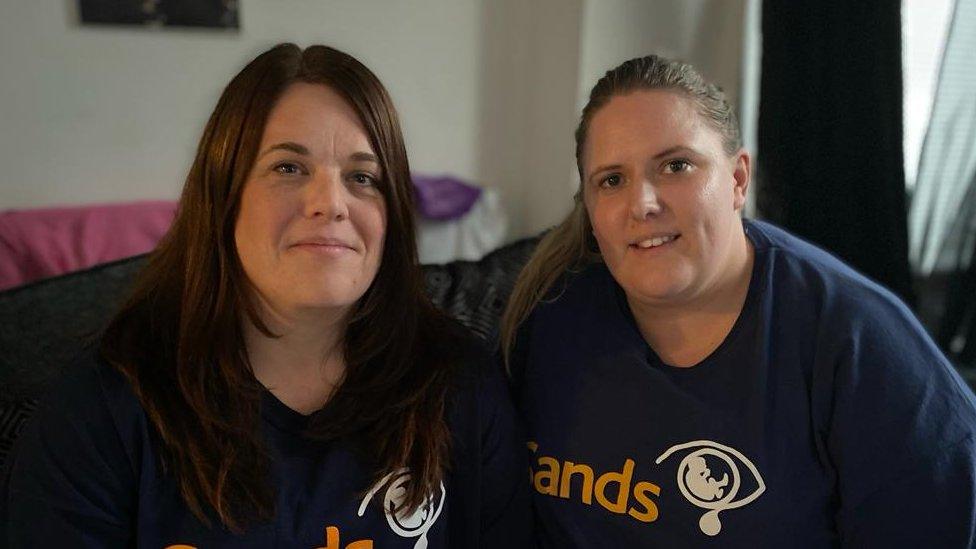
Nathalie Dodds (left) and Kym Field, from charity Sands, said help was available for Gabriel's parents
Her colleague, Kym Field, added that this support would be "with no judgement".
A trawl found there were also no reported missing babies from any UK hospital, while maternity services did not identify "any recent near-term pregnancies or births in which the child had not been seen after birth".
So what do we know about Gabriel?
Most of what we know comes from his post-mortem examination, which said it was likely he had drawn breath and lived independently of his mother.
By the time he was found he was dead for at least 24 hours, with the probability being longer than that, but less than several months.
He had a low birth weight, which police said was "likely to have caused issues with his internal organ function and with maintaining his oxygen levels, keeping himself warm or being able to feed".
Something else that remained unclear was his ethnicity, while there were no signs of "inflicted injury or medical interventions".
Despite not being able to ascertain his cause of death, the report said "there is no evidence to show that the child's death was caused by another person".
Is anyone still trying to find his identity?
With "no further lines of enquiry", police have now closed the investigation.
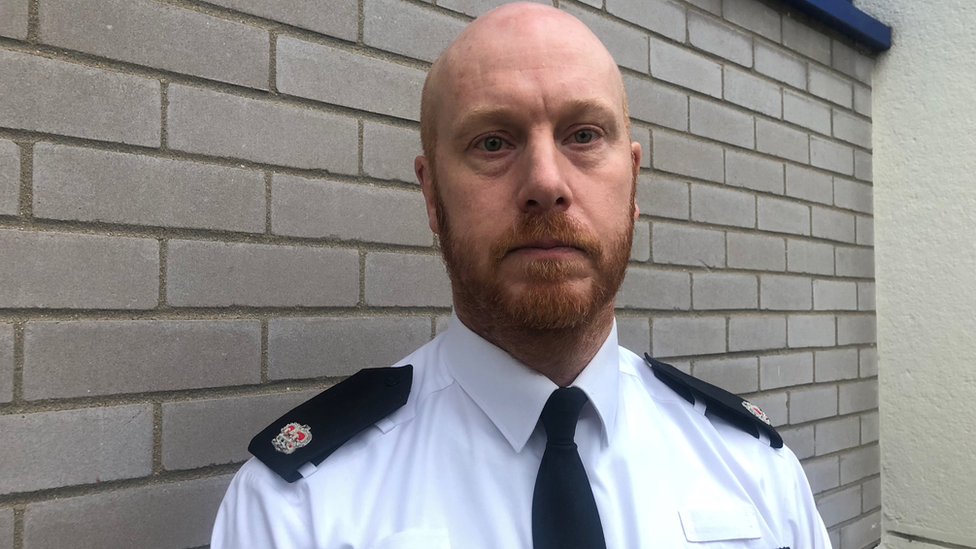
Det Ch Supt John Massey appealed for information at the time
The officer who fronted many of the media appeals, Det Ch Supt John Massey, said: "This is an incredibly sad and upsetting incident for everyone involved.
"All efforts, including a thorough investigation and appeals, were made to locate the mother of the child to ensure she was safe and to try to fully identify baby Gabriel. However, these were ultimately unsuccessful."
Meanwhile, the coroner has suspended any inquest in the event the baby can be identified in the future.
"This is being kept under review by the coroner every six months for the foreseeable future," said a statement.
The coroner's office said Gabriel was "respectfully buried" in July, but was not able to share the location.
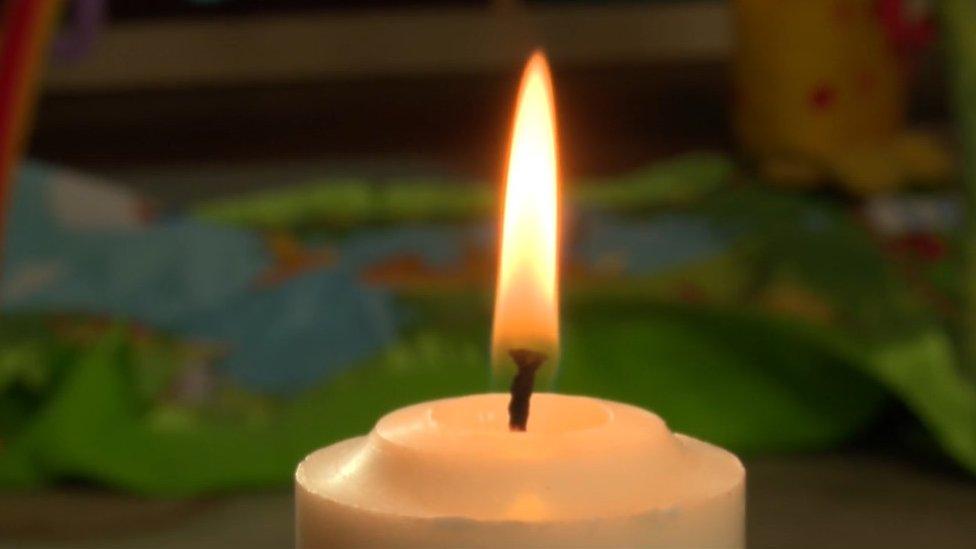
A candle was lit to remember Gabriel at the local church
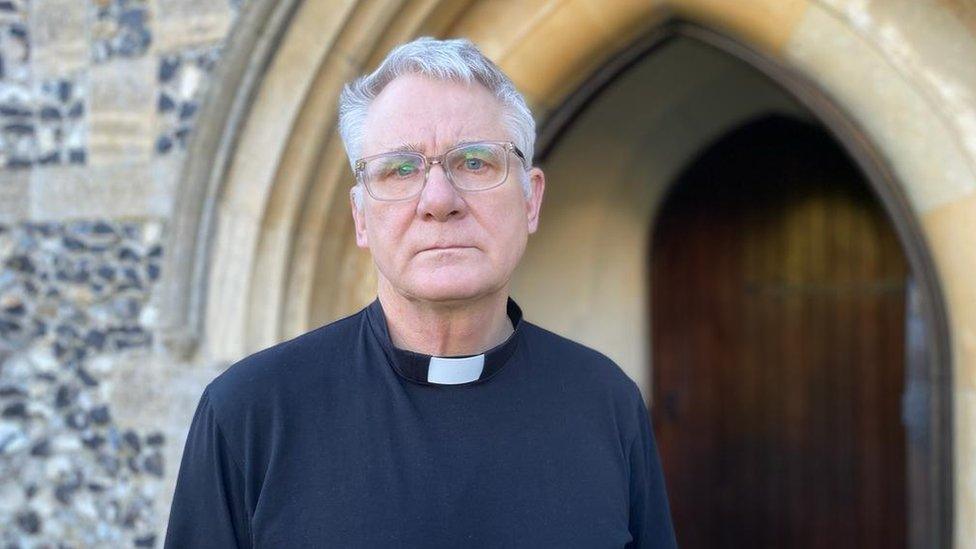
Rev Paul Butler commemorated Gabriel ahead of the anniversary
At the local church, St John's in Waterbeach, prayers were spoken and a candle was lit to remember Gabriel ahead of the first anniversary.
Vicar Paul Butler said it was done to say to Gabriel: "You are not forgotten, you are loved."
It appears the only likely way Gabriel's identity could be known in future would be through a DNA breakthrough, as police said they would be notified "if DNA is taken from either of the parents in the future".
But for now, the mystery continues.

Follow East of England news on Facebook, external, Instagram, external and X, external. Got a story? Email eastofenglandnews@bbc.co.uk, external or WhatsApp 0800 169 1830
Related topics
- Published6 December 2022
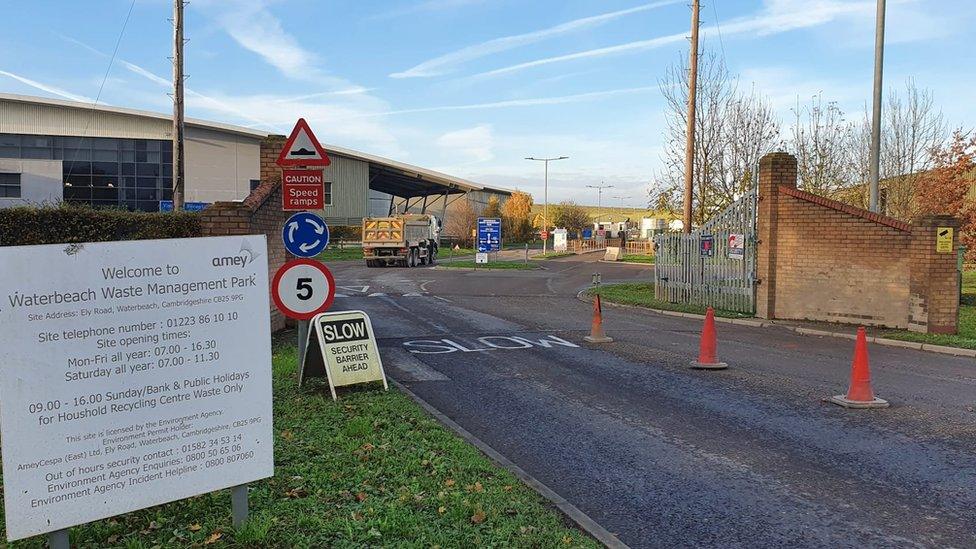
- Published30 November 2022
